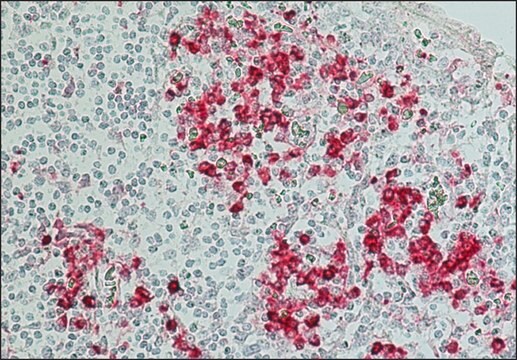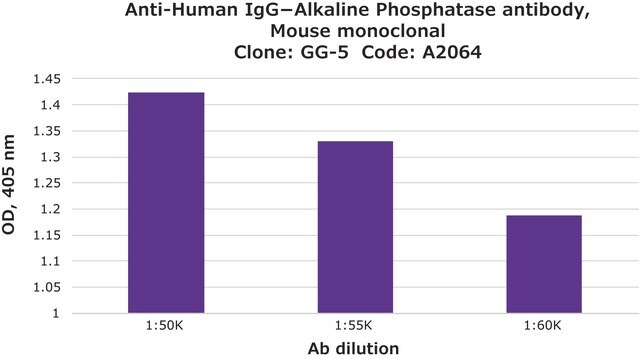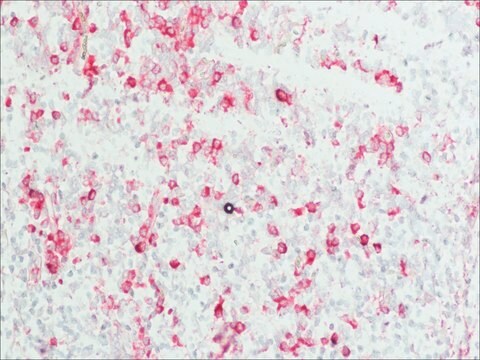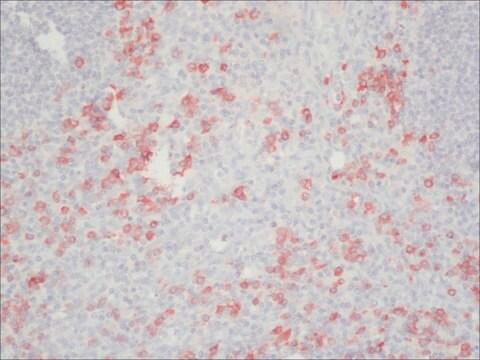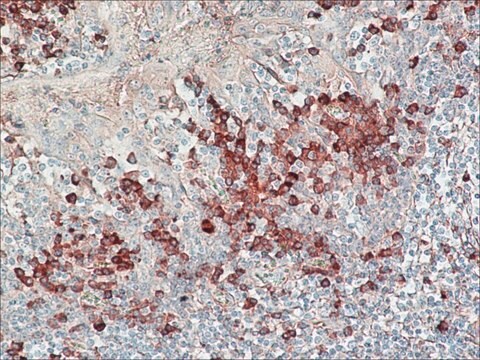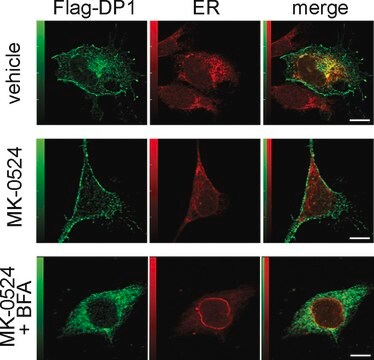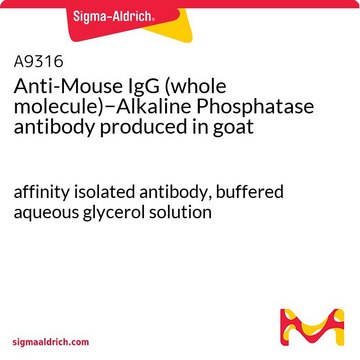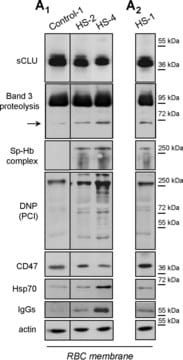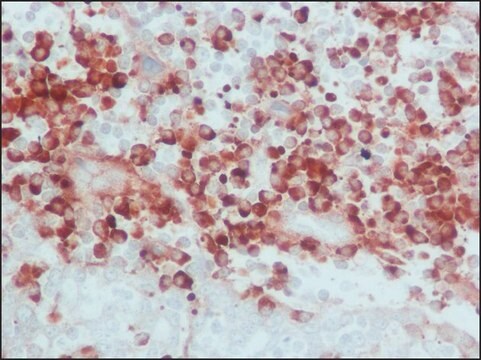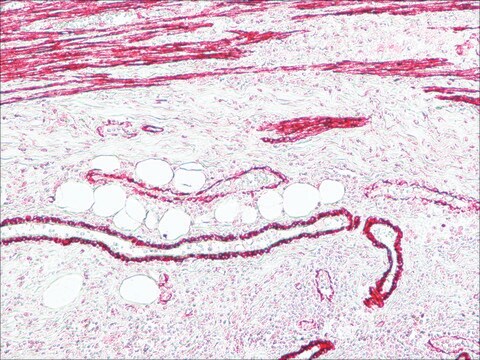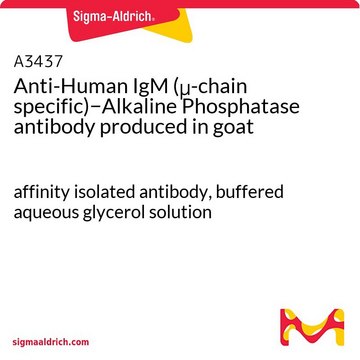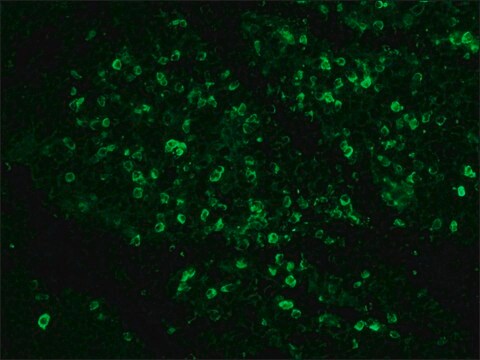A1543
Anti-Human IgG (whole molecule)−Alkaline Phosphatase antibody produced in goat
IgG fraction of antiserum, buffered aqueous solution
Sinónimos:
Goat Anti-Human IgG (whole molecule)−AP
About This Item
Productos recomendados
origen biológico
goat
Nivel de calidad
recombinante
expressed in goat
conjugado
alkaline phosphatase conjugate
forma del anticuerpo
IgG fraction of antiserum
tipo de anticuerpo
secondary antibodies
clon
polyclonal
formulario
buffered aqueous solution
técnicas
direct ELISA: 1:20,000
dot blot: 1:30,000
immunohistochemistry (formalin-fixed, paraffin-embedded sections): 1:50
western blot (chemiluminescent): 1:30,000
Condiciones de envío
wet ice
temp. de almacenamiento
2-8°C
modificación del objetivo postraduccional
unmodified
Descripción general
Inmunógeno
Aplicación
Forma física
Cláusula de descargo de responsabilidad
¿No encuentra el producto adecuado?
Pruebe nuestro Herramienta de selección de productos.
Código de clase de almacenamiento
12 - Non Combustible Liquids
Clase de riesgo para el agua (WGK)
WGK 1
Punto de inflamabilidad (°F)
Not applicable
Punto de inflamabilidad (°C)
Not applicable
Certificados de análisis (COA)
Busque Certificados de análisis (COA) introduciendo el número de lote del producto. Los números de lote se encuentran en la etiqueta del producto después de las palabras «Lot» o «Batch»
¿Ya tiene este producto?
Encuentre la documentación para los productos que ha comprado recientemente en la Biblioteca de documentos.
Los clientes también vieron
Nuestro equipo de científicos tiene experiencia en todas las áreas de investigación: Ciencias de la vida, Ciencia de los materiales, Síntesis química, Cromatografía, Analítica y muchas otras.
Póngase en contacto con el Servicio técnico